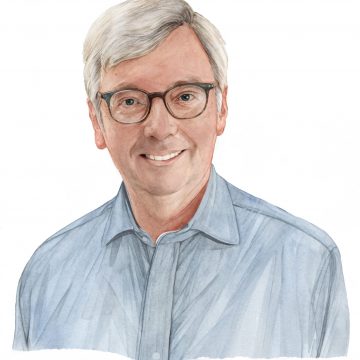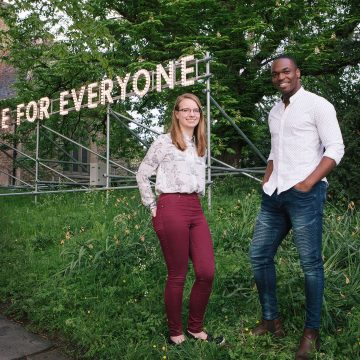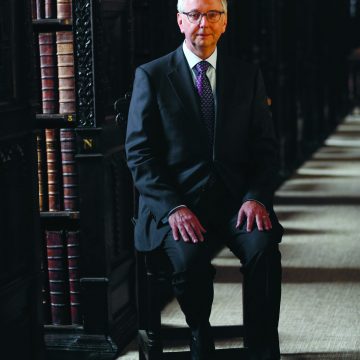All The Best: Widening Participation at Cambridge
Dr Mark Wormald is Secretary of the Senior Tutors’ Committee and Co-Chair of the Student Support Initiative.

Last October, Vice-Chancellor Stephen J. Toope announced an ambitious £500m fundraising initiative to support current and future generations of Cambridge students – the Cambridge Student Support Initiative (SSI). For those of us who had been working with colleagues across Collegiate Cambridge to distil the priorities and principles of this programme for almost two years, it was a bracing moment of irreversible commitment, as well as a statement of intent.
All these initiatives are in pursuit of a single shared aim: to make Cambridge the most diverse and open community of talents it can be, drawn from every corner of the UK and the world.
But in the months since, thanks to the generosity of our alumni, significant progress has been made towards the Vice-Chancellor’s vision of a Collegiate University that is truly open to the best students. Collaboration has been key. Collegiate Cambridge represents more than 30 institutions, each with their own unique characters and traditions; working together is essential to ensuring we are able to offer all our students the best support, whichever their College or subject.
So what does the SSI comprise? There are three core elements. For some years we have recognised the need to add to our capacity to attract the world’s best research students – postgrads – against ever stiffer competition from universities in North America, Europe and Asia. We urgently need more fully funded PhD studentships to bring them to Cambridge. And there’s another problem. Student loans deter too many from applying for the Master’s courses, which in some subjects make the bridge to doctoral study. Being genuinely open to the best means that access to higher degrees must not be limited to those who are sure they can afford it.
Identify and admit the best
Second, we must have the systems in place to identify and admit the very best undergraduates, including those who have suffered real socio-economic and educational disadvantage – and the means to offer the financial support they need to thrive here. This involves being as open and as clear as we can be in explaining the real benefits of studying at Cambridge to prospective applicants, and in ensuring that our current students know we can meet individual need consistently and fairly.
The extraordinary generosity of David and Claudia Harding’s £100m gift to the University and St Catharine’s, announced last term, has already made a huge difference to our capacity to provide financial support to the best. It can also address financial need. Part of the gift is being channelled into what we are calling the Harding Collegiate Cambridge Challenge Scheme. We are working together on proposals whereby funds raised by Colleges for their own students would release a matching sum into a new Intercollegiate Fund to support undergraduates in greatest need across Cambridge.
Wellbeing and mental health
But we also recognise a third, overarching priority: the wellbeing and mental health of our students. The brilliance of our current generation of undergraduates and postgraduates does not protect them from the pressures today’s world places on young people. We know how much Cambridge has to offer beyond supervision rooms, lecture theatres, libraries and laboratories. We need to make sure that these opportunities – cultural, sporting, or just the space for quiet restorative reflection – continue to help our students find a balance between life and work and are not crowded out by anxieties, perfectionism or imposter syndrome.
We know from recent surveys that we have work to do here. Together, students, the University and Colleges have shaped a strategy that has prompted us to review, reinterpret and update our means of pastoral and welfare support, ensuring both that services do not overlap and that gaps are removed. In addition to responding to individual need, we are taking a proactive public health approach to these challenges, informed by leading research on both sides of the Atlantic and working in partnership with Universities UK. We want our students to be as well equipped as they can be for their life as global citizens beyond, as well as at, Cambridge, so this work is essential.
All these initiatives are in pursuit of a single shared aim: to make Cambridge the most diverse and open community of talents it can be, drawn from every corner of the UK and the world. We want to be as open as we can all be about our collegiate University’s extraordinary strengths and wrinkles, and we recognise that, so far as our students are concerned, we must unite. That of course means working, as we will be over the next five years, with our extended community of alumni and friends. Your support will make all the difference.
Find out more about Cambridge’s student support initiative.







